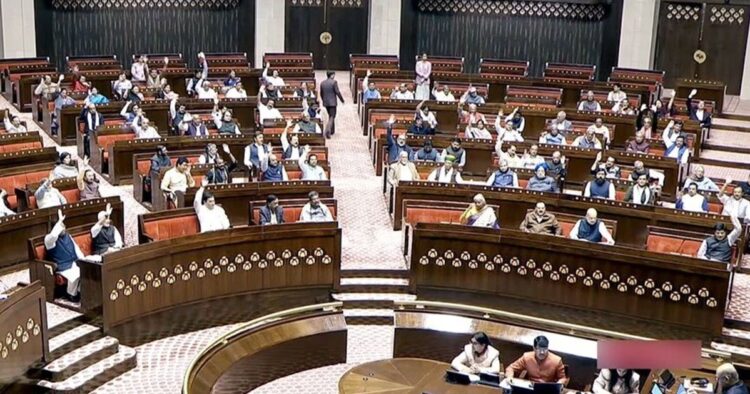In a significant move on Thursday, the Parliament passed a crucial bill aimed at regulating the appointment and terms of service for the Chief Election Commissioner (CEC) and election commissioners. Law Minister Arjun Meghwal, while introducing the legislation, highlighted that it was in response to a Supreme Court judgment, emphasizing the need for a legal framework in this regard.
The Chief Election Commissioner and other Election Commissioners (Appointment, Conditions of Service and Term of Office) Bill, 2023, successfully cleared the Lok Sabha after a brief but substantive debate. Notably, it had been approved by the Rajya Sabha the previous week.
However, the debate witnessed the absence of major opposition political parties, as 97 of their members had been suspended for “misconduct” for the remainder of the ongoing winter session.
The comprehensive bill covers various aspects, including the appointment process, qualifications, Search Committee, Selection Committee, term of office, salary, resignation and removal, leave, and pension of the Chief Election Commissioner and other election commissioners.
Meghwal emphasized that the existing Election Commission (Conditions of Service of Election Commissioners and Transaction of Business) Act, 1991, lacked provisions related to qualifications and the establishment of a search committee. He noted that the Supreme Court, in a writ petition, had ruled that the appointment of CEC and ECs should be made by the President based on the advice of a committee comprising the Prime Minister, the Leader of Opposition in the Lok Sabha, or the leader of the largest opposition party in the House, and the Chief Justice of India.
The minister highlighted that the bill aimed to align with the Supreme Court’s directive, stating, “We are bringing the law for this purpose.”
A noteworthy amendment in the bill is the change in the head of the search committee, which will now be chaired by the Law Minister instead of the cabinet secretary.
According to the provisions of the bill, the President will appoint the CEC and ECs upon the recommendation of a Selection Committee, comprising the Prime Minister, a Union Cabinet Minister, and the Leader of Opposition or the leader of the largest opposition party in Lok Sabha.
The Chief Election Commissioner and other Election Commissioners (Appointment, Conditions of Service and Term of Office) Bill, 2023, is poised to replace the existing Election Commission (Conditions of Service of Election Commissioners and Transaction of Business) Act, 1991.
While the bill received parliamentary approval, opposition members expressed serious concerns, branding it as “one of the biggest blows to democracy” by the Modi government in the last nine years. Congress leaders particularly lamented a perceived erosion of electoral credibility, stating that “EC” once symbolized ‘electoral credibility’ but today is associated with ‘elections compromised.’

















Comments